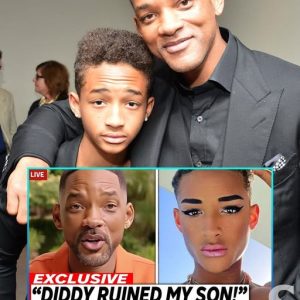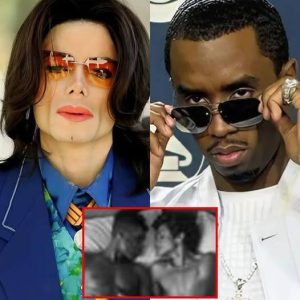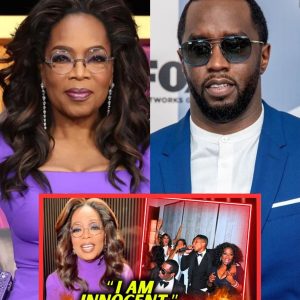Richard Pryor & Paul Mooney Tried To WARN US About Oprah, Clive Davis, Diddy..
Richard was famous for his controversial jokes and how he could flip painful truths into comedy.
His perspective on race, class, and especially Hollywood’s darker side made him a target in some circles, but he didn’t hold back. And Mooney? Well, Mooney took it a step further, warning us about what lay beneath Hollywood’s glamorous surface. Paul Mooney didn’t just entertain-he exposed. And one of his biggest targets? Oprah Winfrey.

Richard Pryor and Paul Mooney, two titans of comedy and cultural critique, weren’t just entertainers. They were outspoken voices against the systemic racism and exploitation that permeated Hollywood. Using their humor and personal experiences, they revealed truths about an industry that often portrayed a glamorous façade while hiding a darker reality.
Their commentary extended beyond the entertainment industry to icons like Oprah Winfrey, music moguls like Clive Davis, and figures like Diddy. Here’s a deeper look at what they tried to warn us about. Both Pryor and Mooney openly criticized the racism embedded in Hollywood. Mooney famously said, “Hollywood likes you a certain way when you’re Black,” highlighting how the industry often demanded conformity from Black entertainers. They were expected to fit stereotypes or act in ways palatable to white audiences.
Pryor, whose comedy tackled issues like poverty and racial injustice, exposed these dynamics through raw humor. Their insights weren’t just observational; they came from personal experiences. Pryor’s rise to fame was marked by struggles with an industry that wanted to capitalize on his talent while refusing to truly accept him.
Mooney, as a writer for Pryor and a stand-up comedian, was unflinching in calling out Hollywood’s preference for tokenism over real representation. Paul Mooney often targeted Oprah Winfrey in his critiques. While many saw Oprah as a symbol of Black excellence, Mooney viewed her as a “double agent” someone who climbed the ladder of success but left her community behind. He called her “Aunt Jemima with a degree,” a biting critique of her perceived alignment with white elites.
Mooney’s disdain stemmed from Oprah’s associations and choices, which he believed were more about maintaining her position than advancing Black causes. He pointed out her ties to powerful figures and her tendency to platform controversial individuals who didn’t always align with the interests of Black communities.
For Mooney, Oprah represented the complexities of success in a racist system-how it often required compromises that came at the expense of one’s identity or community. Richard Pryor and Paul Mooney’s criticisms weren’t limited to Hollywood; they also extended to the music industry, where moguls like Clive Davis held immense power. While neither directly targeted Davis in their comedy, their insights into systemic exploitation resonate with the controversies surrounding figures like him.

The music industry has long been criticized for its treatment of Black artists, many of whom were exploited financially and creatively. Davis, a legendary figure in the industry, has been accused of wielding disproportionate control over artists’ careers. Pryor and Mooney’s broader critiques of how Black talent was controlled and commodified in Hollywood apply here as well.
They highlighted how institutions built on Black creativity often denied those creators true agency. Sean “Diddy” Combs, a powerful figure in the music and entertainment industry, represents the complicated legacy of Black success within predominantly white-controlled systems. While Diddy has achieved incredible success, he’s also been criticized for perpetuating some of the exploitative practices he once faced.
Pryor and Mooney’s commentary on Black entertainers who gain power within oppressive systems is relevant here. They often warned about how success in such systems could come with moral and ethical compromises. Mooney’s critique of Oprah as a “double agent” could easily extend to discussions about Diddy’s role in the music industry, where allegations of mistreatment and financial disputes with artists have followed him for years.
One of the most unsettling aspects of Pryor’s and Mooney’s warnings was their exposure of the exploitative and dehumanizing behavior that occurred behind closed doors. Pryor’s bodyguard spoke about wild Hollywood parties involving drug use, power plays, and sexual exploitation. These events often revealed the true nature of the industry’s elite-one where Black stars were welcomed for their talent but treated as commodities.
Mooney and Pryor used their platforms to shine a light on these realities, showing how fame often came at a steep price. For Black entertainers, this price was even higher, as they had to navigate both the typical challenges of stardom and the added burden of systemic racism. Richard Pryor and Paul Mooney’s commitment to exposing the truth came with consequences.
Pryor faced backlash for his unfiltered humor, and Mooney was often labeled as difficult or rude for his blunt critiques. Despite their success, they remained aware of how fragile their positions were within a system that prioritized control over empowerment.






